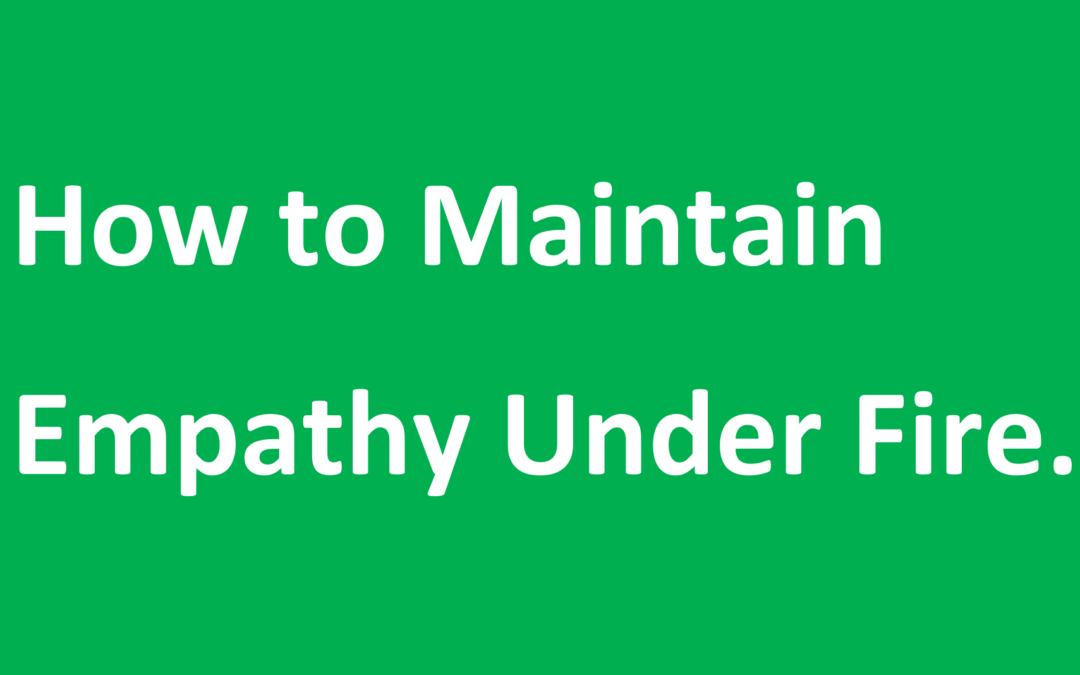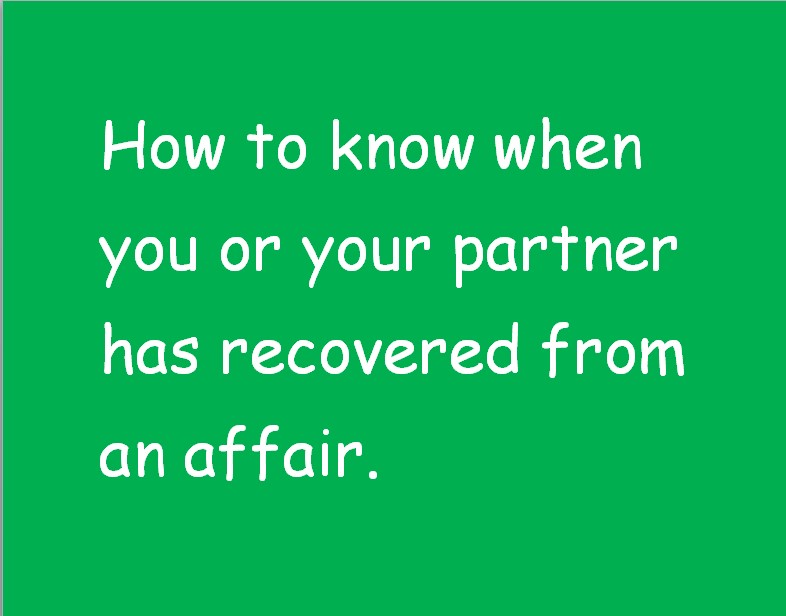


The Slap: Why we “lose it”
Actor Will Smith stunned America when he slapped comedian Chris Rock during the Oscars and both the news and social media went wild. Reactions to the incident ran the entire gamut from praise to disgust. Some saw it as a chivalrous act. Others viewed it as a disgusting example of toxic masculinity. Still others felt is was evidence of mental condition. CNN+ | Interview Club | Interview – Why the Oscars Altercation Between Will Smith and Chris Rock Was Such a Trigger
As a therapist I help people learn to control their dysfunctional impulses, It would be helpful to learn from this unfortunate incident and clear up some fundamental misunderstandings about anger. This event can be an opportunity to shed light on the serious but misunderstood societal problem of poor impulse control.
With respect to Will Smith, there are no ifs, ands or buts about it. What he did was wrong and unacceptable on so many levels. In addition, the audience’s calm reaction to it all demonstrates that the problem is much greater than the act of an individual. The whole situation is a glaring and a sad commentary about how callous and insensitive our culture has become to aggressive behavior.
To be clear, my concern, here, is neither to judge nor defend the man but to explain the psychology of impulsive behavior. Indeed, it must be acknowledged that. under the right circumstances, any one of us is capable of a similar reaction. Rather than seeing this as Will Smith’s problem, it is more helpful to view it as a human problem. That is, I want to explain how impulse control issues are rooted in the fundamental structure of our brain. Here are a couple of basic facts which debunk some common myths about anger:

On Feeling Overwhelmed
Given the Ukranian situation, skyrocketing gas prices and COVID, many folks are feeling overwhelmed. If you are one of those folks, it is important to understand that there is nothing is wrong with you for feeling over-stressed.
Of course, feeling over-stressed is nothing new. Indeed, human beings have always had emotional limits. Fortunately, there are many resources available online to help you cope.
To help you sort through them all, here is a summary of what you need to know about feeling overwhelmed and what to do about it:

PLAN B for Lower Stress
As we begin 2022, many turn their thoughts making new year’s resolutions. Helpful tips for making resolutions can be found everywhere, in special news reports, internet blogs and in the self-help section of bookstores. 7 Proven Steps to Set Achievable Resolutions – Life Leaders Institute Indeed, over the years, I have also offered advice to help folks stick to their resolutions. Getting Real about New Year’s Resolutions: Some things to think about before making one. | Pastoral Counseling Syracuse NY (revmichaelheath.com) Today, however, due to COVID and other stressors, which have made 2021 so difficult and anxiety filled, I want to talk about a stress management/anxiety-lowering approach called Plan B.
Feeling anxious is sometimes unavoidable. There is some stress which can’t be avoided because some aspects of life are out of our control, However, even when things happen which are out of your control, it is possible, with some practice , to reduce our level of anxiety. Expectations, for example, are something that we can control and adjust with a little reflection. When traveling unexpected problems like cancelled flights or rooms not being ready can cause emotional distress, if one, unrealistically, expects that things will go perfectly without a hitch. Understanding how our brain reacts to surprises and having a Plan “B” to turn to when frustrations occur can dramatically lower our experience of anxiety. Here’s how it works:

The Paradox of Fear
This year, as Halloween is getting back to normal, instead of being consumed by our fears of COVID-19, we can step back, reflect and think about our fascination with scary things. Of particular interest is the paradox between our enjoyment of being scared by unreal threats, on the one hand, and our avoidance and denial of real threats on the other.
We celebrate and enjoy horror movies and other things which can temporarily scare us. Yet , as we have seen in the large number of people who reject science and remain unvaccinated or refuse to wear masks or take other reasonable precautions to prevent contracting or spreading the coronavirus. Sadly, many Americans deny the reality and the severity of COVID-19. Although counter-intuitive, psychology can explain, at least in part , why this strange contradiction exists.

SEXUAL TRAUMA and RECOVERY
Something significant is happening amidst the chaos of the current COVID situation. People are becoming interested in the psychology of trauma, As I write this segment, a modern classic in trauma theory, The Body Keeps the Score, sits atop the New York Times best seller list. Opinion | This Conversation Will Change How You Think About Trauma – The New York Times (nytimes.com) This book and its findings are especially important for survivors of childhood sexual trauma because it both dispels myths and false beliefs commonly held about trauma and offers important insights for recovery.
One false notion is the idea that trauma is just a normal memory about an unpleasant event. Likewise, many erroneously believe that some trauma survivor “hold on” to the abuse or that they could “let go” if they really wanted to do so. Indeed, the author, van der Kolk points out that the conscious mind is often unaware of the full extent of the damage caused by trauma and even worse it blames the self for causing it.
Although explaining what trauma actually is and does, neurologically, is a bit complicated, here is practical summary of the most important findings of his contemporary research concerning what trauma is, how it harms the survivors and how they can heal from it:
Defining trauma: Rather than simply causing a return of a memory of a bad event , ” When someone experiences a traumatic event or experiences extreme fear, brain chemistry is altered and the brain begins to function differently–this is called the “Fear Circuity” Neurobiology of Trauma (unco.edu) Here are some crucial ways trauma alters brain functioning:

COVID, Science and Anger
As COVID-19 surges, the number of angry people and violent incidents increases daily and is growing at an alarming rate.
Given this level of rancor, one never knows when one may be caught in a difficult situation . As such, in order to to know how to respond in when menaced by an angry person, it is helpful to understand some basic brain science about anger.
Here is a summary of what is going on in the brain of folks who have “lost it” and some guidelines for dealing with them.

Husbands not wanting sex
It’s almost Father’s Day but, in addition to dads, men are also husbands. And since there isn’t a “husbands” day … there is a serious problem that needs to be addressed that does not receive enough attention, viz., men’s lack of sexual desire for their wives .
Although many believe that men are more interested in sex than their women, it has been my clinical experience for some time that this is not true . In fact, the number of men who are not having sex with their wives seems to be increasing. Hope and Understanding for Sexless Marriages. (revmichaelheath.com)
The truth is, unfortunately, that there is no simple answer as to why men don’t want to have sex with their wives. There are, however, several different reasons why passion may left the relationship. (Since each situation is different and because there are so many different causes, each couple could benefit from discussing their particulars with an experienced professional .) Nonetheless, in general, here are some of the most common causes men don’t want sex with their wives.

Rebuilding Trust After an Affair: How to Maintain Empathy Under Fire.
This segment seeks to help couples who struggle with trust after an affair. It especially offers guidance for the offending partner. Specifically, the solution rests on the offending spouse’s ability to listen, accept and understand his/her partner’s anger. Indeed, defensiveness by the betraying spouse toward his partner’s pain is often a major obstacle which blocks the offended spouse from regaining trust. Here are some observations which can help explain why rebuilding trust is so difficult as well as some tips for how it can be done.

Why can’t you just get “over it” ? How to tell when someone has recovered from an affair.
One of the most commonly heard laments when working with couples who have survived an affair is: ” Why can’t you just get over it and move on ?”
While the comment is usually made by the offender who is frustrated that his/her mate still brings up what s/he has done, the remark also raises a good question to which many folks don’t know the answer. So, today let’s talk about what has to happen emotionally for one to “get over” and “move on” from betrayal and how one can tell when it has happened.